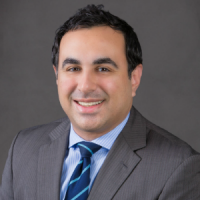I’m looking into the EB-5 program, but I want to ensure I choose the right regional center. What are the most important things to check to know if a regional center is reliable? What is a red flag I must be aware of? How much expertise must the regional center have? Who should provide this information?
Answers

Robert V Cornish Jr
Securities AttorneysYou should work with a broker-dealer or securities attorney in the USA to ascertain the business character of the people running the Regional Center. That includes running litigation searches and other background checks. The Regional Center should have people who are familiar with the business sector of the project, understand the dynamics and financial issues involved in project development, and have at its disposal skilled professionals to navigate the regulatory landscape of EB-5. The biggest "red flag" that requires scrutiny is where those running the Regional Center are performing multiple roles, such as acting as the developer, securities counsel, your immigration counsel or escrow agent. It is important that each aspect of your chosen EB-5 project is free of conflicts of interest.

Lynne Feldman
Immigration Attorneys DirectoryFirst of all, you should approach it as an investment and if you need to hire a professional to help you determine this then do so. I would ask about their immigration track record – how many I-526 approvals and I-829 approvals do they have, bios on project managers. Ask about the expected return on your money, when would you expect to receive your investment back, do you get your money back if the I-526 is not approved for any reason. Other questions would be dictated by the project itself and how new it is. How many other investors are there already? How many do they need to be successful? What are the jobs that will be created and when?

Yuliya Veremiyenko-Campos
Immigration Attorneys DirectoryYou need to check that the regional center is approved by USCIS and has filed its Form I-956F for the project you are looking to invest in. You can request that the regional center provide its regional center designation approval notice and Form I-956F receipt notice issued by USCIS. You should also check the regional center's past track record and reputation, including how many EB-5 projects they had in the past, if any of the projects had issues, if they repaid their EB-5 investors, and if any of their investors had I-526/ I-829 denials because of the issues with the project. Also, make sure to review the offering documents provided by the regional center for the specific project you plan to invest in. It contains important information about the project structure, financial data, risks, etc.

Michael A Harris, Esq
Immigration Attorneys DirectoryTo assess the reliability of an EB-5 regional center, several factors are crucial for ensuring the center aligns with your goals and meets USCIS standards. Here’s a structured approach:
1. Track Record and Reputation
Investigate the regional center’s history of success in securing approvals for EB-5 investor petitions, both at the I-526 (initial investment) and I-829 (removal of conditions) stages. Established centers with a strong approval history may indicate stability and experience. Past approvals can add a level of confidence, as USCIS generally extends deference to previous approvals in similar circumstances.
2. Compliance with the EB-5 Reform and Integrity Act (RIA) of 2022
Ensure that the regional center complies with the updated RIA requirements, which enforce stricter guidelines on project transparency, fund security, and annual audits. Regional centers must now file Form I-956G annually to report on ongoing projects and job creation, among other obligations. Non-compliance with these requirements can lead to regional center termination, which could impact your immigration process if not addressed properly.
3. Project and Job Creation Viability
Review the project’s business plan, focusing on job creation estimates. Regional center projects often rely on a mix of direct, indirect, and induced job creation, but the estimates should provide a comfortable buffer beyond the minimum 10 jobs per investor. Economic reports are usually provided to detail job creation forecasts and any associated contingencies if estimates fall short. This is essential for meeting USCIS requirements and ensuring your investment leads to the necessary job creation for the I-829 approval.
4. Financial Structure and Capital Stack
Examine the project’s capital structure, including the percentage of funds from EB-5 investors versus other financing sources. A project heavily reliant on EB-5 funds without other capital sources may indicate higher risk. Conversely, a project with substantial equity from developers or institutional investors often signals financial stability. In the event of funding shortfalls, inquire whether the developer or regional center has guaranteed financial completion of the project or has contingency financing arranged.
5. Transparency and Communication
Reliable regional centers maintain transparency with investors by providing timely updates on project milestones, job creation metrics, and fund deployment. USCIS requires that foreign investors have a clear path and source of funds, documented by third-party verifications like bank records and government-issued certificates. Regional centers that prioritize transparent communication are typically more diligent in fulfilling compliance obligations.
6. Red Flags
Be cautious of regional centers offering guaranteed returns, guaranteed principal repayment, or high-pressure sales tactics. Any contractual right to repayment or guaranteed return of capital compromises the investment's “at-risk” requirement, making the investment ineligible under EB-5 rules. If offered, this could signify regulatory non-compliance and lead to USCIS denials.
For an in-depth evaluation, consider consulting with an experienced immigration attorney who can analyze the specific regional center’s compliance record and financial health. They can guide you through documentation requirements and help assess whether the center’s offerings align with USCIS standards and your immigration goals.

Charles H Kuck
Immigration Attorneys DirectoryYou should speak to a certified investment advisor. There are many regional centers that have failed over the years. Look for a good, extended track record.
DISCLAIMER: the information found on this website is intended to be general information; it is not legal or financial advice. Specific legal or financial advice can only be given by a licensed professional with full knowledge of all the facts and circumstances of your particular situation. You should seek consultation with legal, immigration, and financial experts prior to participating in the EB-5 program. Posting a question on this website does not create an attorney-client relationship. All questions you post will be available to the public: do not include confidential information in your question.






